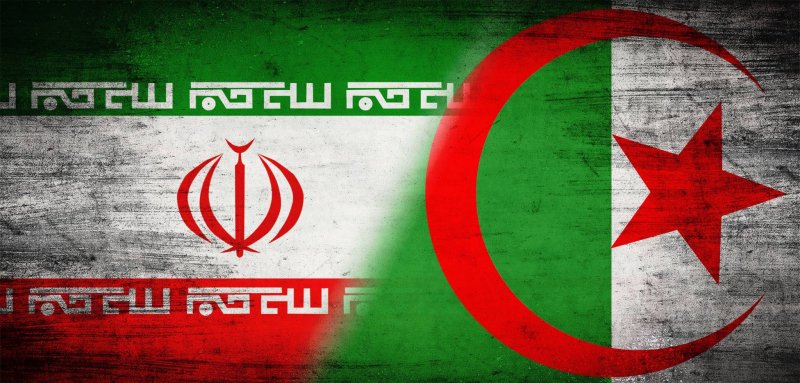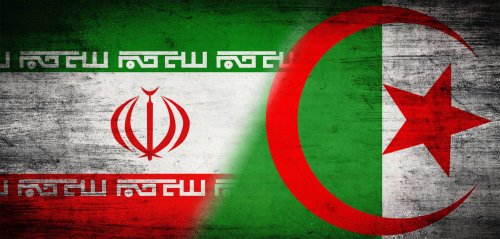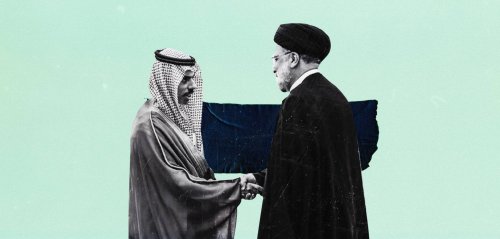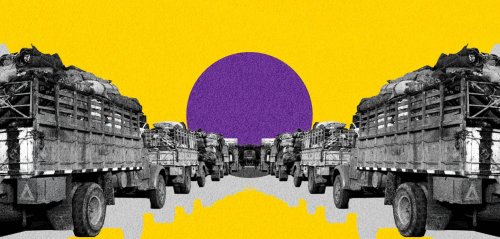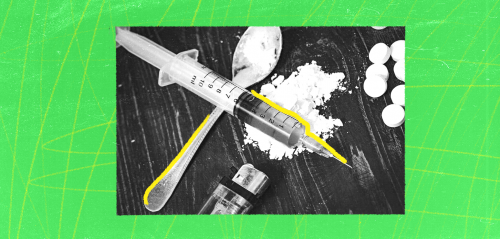The diplomatic ties between Iran and Algeria have long been marked by a sense of friendliness. Since its independence following the liberation revolution from France in 1962, Iran has nurtured relations with Algeria. The relations began with Iran sending a delegation to partake in the celebration of Algeria's independence, and within two years, Iran established its embassy in the Algerian capital.
In reciprocity, Algeria dispatched an accredited ambassador to Tehran in 1964. A significant stride was made when Algeria set up its embassy in Tehran after nine years, precisely in 1973. During this period, the relationship wasn't dormant; both nations actively worked on enhancing ties across industrial and commercial sectors. Notably, they collaborated to determine oil prices within OPEC, an organization then led by Iran.
However, a temporary strain hit the Iran-Algeria relations when Algeria declined to acknowledge Iran's ownership of the three islands in the Gulf (Greater and Lesser Tunbs, and Abu Musa) during its participation in the Non-Aligned Movement Conference in 1972. This impasse led to Iran recalling its diplomats from Algeria. Fortunately, this rough patch was short-lived. Algeria played host to Iraq and Iran, fostering an environment conducive to negotiation. Eventually, the two countries reached an agreement on the division of the Shatt al-Arab waterway between the two countries.
After the Islamic Revolution
With the triumph of the Islamic Revolution in Iran in 1979, these bilateral relations were further cemented, effectively resolving past conflicts in the realm of foreign policy. Iran's departure from Western alliances played a pivotal role in enhancing ties with countries actively participating in the Non-Aligned Movement, Algeria being a prominent example. Collaborative efforts on global issues, particularly those concerning the Islamic world, gained momentum, with the Israeli occupation of Palestinian territories taking center stage.
Algeria offered to act as a mediator between Iran and the United States to resolve the predicament of the seizure of American embassy personnel by militants following the victory of the Islamic Revolution in Iran
The victory of the Islamic Revolution in Iran coincided with the presidency of Algeria's former leader, Chadli Bendjedid. A significant catalyst in the evolving dynamics of the two nations during this period was the contentious issue of the seizure of American embassy staff by militants aligned with the new regime in Iran. Algeria stepped forward, proposing to mediate between Iran and the United States to seek a resolution to this pressing matter.
Concurrently, the Algerian government initiated mediation initiatives and issued the Algerian Statement, which emerged as a critical instrument in expanding the rapport between Algeria and the Islamic Republic in the years that followed. This relationship flourished, attaining a constructive tenor between the two entities. Notable among these developments is the accord forged between the two countries in November 1985. This landmark agreement saw Iran lending support to Algeria on the Western Sahara issue, while Algeria reciprocated by backing Iran during the Iran-Iraq War.
The 1990s and a complete diplomatic break
Algeria nurtured Iranian interests in the United States from 1981 until the outbreak of the Algerian Civil War. During this tumultuous period, the relationship between Iran and Algeria reached its lowest point. Algeria accused Iran, along with Saudi Arabia, Morocco, Sudan, and Libya, of interfering in its internal affairs and backing Algerian Islamic groups.
The Algerian president at that time did not want to let his country become another Iran, so he cracked down on Islamist movements within Algeria. As a result, Algeria ceased its advocacy for Iran's interests in the United States as a response to Iran's support for armed Islamist factions. This culminated in Algeria unilaterally severing diplomatic ties with Iran, leading to a complete rupture in 1993.
In 1982, during the Iran-Iraq War, Algerian President Chadli Bendjedid entrusted his former Foreign Minister, Mohamed Seddik Benyahia, with the task of mediating between Tehran and Baghdad. The goal was to convince Saddam Hussein to accept the Algiers Agreement of 1975. However, tragedy struck when the plane carrying Benyahia for this mission was shot down, resulting in his death and the loss of 13 others.
The dawn of the 21st century
With the start of the 21st century, approximately eight years after the severance of diplomatic relations, a pivotal meeting between former Iranian President Mohammad Khatami and his Algerian counterpart Abdelaziz Bouteflika took place during the United Nations Millennium Summit in 2000. This meeting had a profound impact on rekindling the diplomatic ties between the two nations.
While political relations between the two countries normalized, economic and trade connections remained limited and virtually inactive. After two years of negotiations, discussions gained momentum, aiming to explore ways to enhance political, economic, cultural, regional, and international cooperation between Tehran and Algiers.
Subsequent to this, President Bouteflika embarked on a visit to Iran in 2003. During this significant visit, the two nations reached an accord to establish a collaborative economic committee. The aim was to foster a broader and more robust partnership across diverse domains, including legal cooperation, higher education, small-scale industries, financial matters, animal health, poultry, pharmaceutical manufacturing, construction, cement production, machinery components, and the oil sector.
Iranian diplomats on Algerian soil
A mere year separated President Bouteflika's diplomatic overture to Iran from the arrival of former Iranian President Mohammad Khatami in Algeria. This visit had a strategic focus on expanding collaboration between the two countries in the context of Iran's nuclear program. These diplomatic ties paved the way for Ali Larijani, who was steering the Iranian nuclear dossier as the Secretary of the Supreme National Security Council, to visit Algeria in June 2006.
Merely a couple of months later, the Iranian Minister of Foreign Affairs at the time, Manouchehr Mottaki, set foot on Algerian soil. He delivered a message from Iranian President Mahmoud Ahmadinejad addressed to President Bouteflika, then August 2007 witnessed President Ahmadinejad himself gracing Algeria with his presence. The visit revolved around a range of subjects, including Iran's nuclear pursuits, the situations in Iraq and Palestine, and the "Mediterranean Union" project, an initiative championed by former French President Nicolas Sarkozy, among other pressing matters.
During the reign of the seventh Iranian President, Hassan Rouhani, these bilateral bonds developed further, and the concerted efforts of both sides were reflected in their efforts to strengthen their economic relations. The zenith of this concerted diplomatic and economic endeavor materialized through the visit of Iran's First Vice President, Eshaq Jahangiri, to Algeria. During this period, the two nations signed 19 memorandums of understanding, 15 of which were intricately linked to the automotive manufacturing and spare parts sector.
From politics to culture
The contours of Iranian-Algerian relations transcended the realm of politics and economics, extending to a rich collaboration in the domains of culture and the arts. The visit of Reza Salehi Amiri, who was at the helm of Iran's Ministry of Culture and Guidance at the time, to Algeria in the later months of 2017, played a pivotal role in invigorating their shared relations. Amiri underscored, "Iran attaches particular importance on nurturing cultural ties with Algeria, a connection that resonates through both political and economic domains. Iranian President Hassan Rouhani also underscored the necessity of cultivating and deepening the cultural nexus with Algeria."
The diplomatic ties between Iran and Algeria have extended beyond the realm of politics and economics to include a rich collaboration in culture and the arts. Despite the ebb and flow these relations endured, they remain defined by a steady harmony over five decades
Iran has been an active participant in various cultural initiatives in Algeria, prominently including its involvement in the "Constantine, Capital of Arab Culture" program. Notably, Iran also received honorary recognition in the Mediterranean Film Festival in Annaba and the Oran Film Festival.
Emerging from this blossoming cultural connection is a collaborative cinematic endeavor titled "Ahmed Bey" in 2018, featuring the creative contributions of both Iranian and Algerian filmmakers. This artistic cooperation has been further complemented by an array of exhibitions hosted by Iran within Algerian borders.
Moreover, an area within an Algerian city was named "Tehran," while a street in the Algerian capital was aptly named "Persian Gulf". This naming choice was significant, especially when contrasted with other Arab nations maintaining cordial relations with Iran yet refraining from adopting similar nomenclature for the Gulf.
Nonetheless, alongside these achievements, the bilateral relationship faced some turbulence in the realms of culture and religion. A noteworthy instance occurred in January 2018 when Amir Mousavi, the cultural advisor at the Iranian Embassy in Algeria, directed criticism towards the widow of the late Algerian President Houari Boumediene due to her involvement in an Iranian opposition conference in Paris. This incident provoked public outrage across Algerian social media platforms, sparking calls for accountability and Mousavi's expulsion. Subsequently, in September 2018, Amir Mousavi concluded his four-year term in Algeria. Concerns surrounding his alleged promotion of Shia ideology within Algeria and the subsequent demands for his departure contributed to this decision.
Through the decades, despite the ebb and flow the Iranian-Algerian relations experienced, they have consistently been marked by affection and stability over a span of five decades.
Raseef22 is a not for profit entity. Our focus is on quality journalism. Every contribution to the NasRaseef membership goes directly towards journalism production. We stand independent, not accepting corporate sponsorships, sponsored content or political funding.
Support our mission to keep Raseef22 available to all readers by clicking here!
Interested in writing with us? Check our pitch process here!
